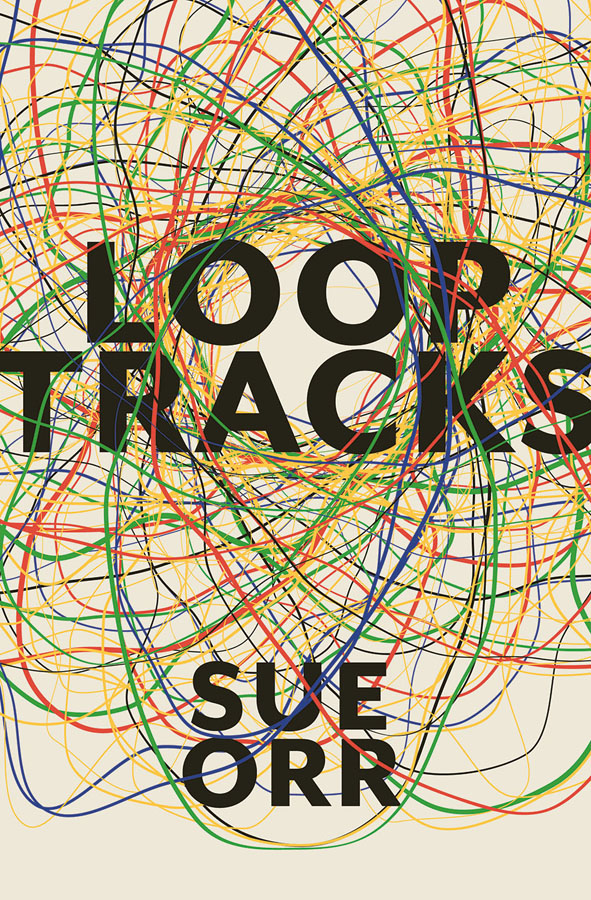Orr’s first novel The Party Line (2015) vividly portrays the lives of sharemilkers and their families in the 1970s in the northern Waikato. It is a coming-of-age story, notable for its honesty and humanity, realistic evocation of a passed era, and lovingly created, believable setting and characters. Loop Tracks is her second novel, set in Wellington, and shares many of the same characteristics.
The narrative moves smoothly between two time schemes. In the earlier, we meet sixteen-year-old Charlie, short for Charlotte, who has the misfortune to fall pregnant in 1978, when safe legal abortion was once again briefly unavailable in New Zealand. The Auckland clinic had been closed, not to reopen until 1980. Fictional Charlie (and thousands of real women) were forced to anticipate a lonely and expensive procedure on the other side of the Tasman.
Charlie has had sex only the once, and believes, as many girls did then and possibly still do, that loss of virginity and fertilization are mutually exclusive. Orr puts Charlie on an actual Pan Am flight that really was delayed, and bases this part of her story on the real-life experience of a friend. During the delay Charlie gets off the plane and does not get back on it. Despite the desperate, hard scrabble that her loving but deeply ashamed parents have made to fund the abortion, and despite the fact that she does not remember, or never knew, the surname of her impregnator Dylan, she cannot face the procedure.
She ‘goes away’, as we said then, gives birth to a son, and gives him up for adoption. This part of the action is lightly handled, perhaps because for the bulk of the book, set in 2019 and 2020, it is a long time in the past. When we meet Charlie again, she is in her late fifties, has not had any other children than the boy she gave away, but has had the care of teenage grandson Tommy since the time he was a pre-schooler. Charlie’s son Jim has had a difficult, loveless life; Tommy’s mother is dead; and Jim has dumped his unwanted child on the woman who was not able to keep him. It seems the punishment of the gods continue to rain down — Tommy is autistic, or at least, on the spectrum. He struggles with intimacy and change, and has obsessive qualities that are at once brilliant and disturbing.
A bleak scenario — but in Sue Orr’s hands the subtleties of familial and blood connections are complex, challenging and inspirational. Mature Charlie is unflappable, careful, clever, as determined as she was at sixteen, but this time to do the best by those she loves. She’s tough too, able to ringfence the troubled grandson from his amoral, unpleasant father, and counsel him through his first sexual relationship. Apart from her friend Adele, who acts mostly as a character foil, she is a fairly solitary character, devoting herself to her grandson and tolerating her son. The blooming of a love affair is a pleasant surprise.
The pandemic of 2020 throws the family into even closer proximity. It is the pandemic as Wellington experienced it, which was marginally less disturbing than that of Auckland. Orr is apposite and blackly amusing on some of the conflicting rules:
‘We may walk but we may not swim. We may run, or cycle, on steep cliffs. We may go to the pharmacy but we must not go inside the pharmacy. At first we thought we might drive to the beach, to swim and to walk on the beach. But the rules have been explained and they are that we may not drive to the beach…We may walk on the beach but only if we walk to the beach. If we walk to the beach we may not pause, or sit. To sit on the beach would be to go to the beach, which is not exercising, which is permitted. We may not walk too far to find a beach. Too far is a distance further than two kilometres… On no account should we let cool salt water lap over our feet.’
Orr’s characters squabble, fight, leave, come together, vote different ways in the 2020 election, and confront the most difficult questions about their origins and the repercussions of immature decisions. Lockdown over, the joys of going out again into the city demonstrate Orr’s love for the capital. Wellington is beautiful and vertiginous, the bucket fountain and Cuba Street are affectionately described, and Charlie’s love for the natural world allows some informed asides on huhu grubs and various species of bird.
As has been noted times without number, we live in sensitive times. It could be that Sue Orr risks castigation in this era of cancel culture, because the meta-narrative of ‘Loop Tracks’ could be casually misinterpreted by those who are adopted, or who have become adoptive parents. These days, adoption is seriously out of fashion. It is not difficult to hear bewildered voices: Is she saying that adoption leads to misery and drug addiction? Is she implying that adoption, as an event at this year’s Auckland Writers’ Festival was headed, is ‘a crime’? Many of us are aware of happy, successful adoptions, where adopted progeny are no more or less healthy and mentally balanced than so called ‘natural’ children. Adoption, it seems, suffers a lot of finger-pointing and a lot of amnesia concerning those adoptions (the majority) that bring stability and fulfillment to all parties.
But a novel is not a novel without dramatic tension. Orr could not have shown us an easy solution to the calamity of being forced to give up a child, or to gloss over the heart-breaking permutations that may come afterwards. In final analysis, Loop Track is an elegant, delicately told, thoughtful story of triumph.
This review was originally published on the Academy of NZ Literature site.



